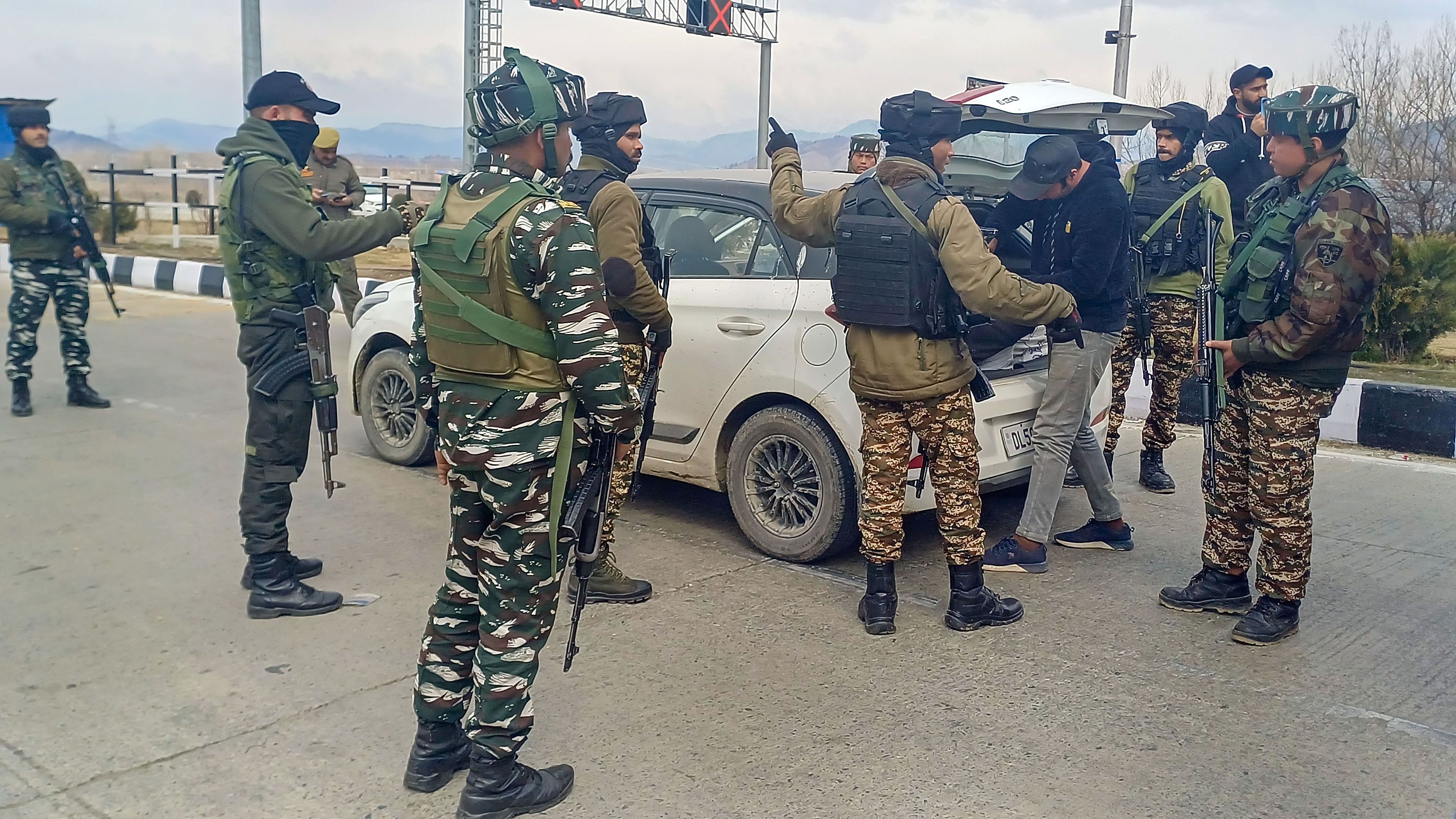
Security personnel check vehicles ahead of Prime Minister Narendra Modi's visit, in Srinagar.
Credit: PTI Photo
Prime Minister Narendra Modi’s March 7 visit to Kashmir will be his first after the abrogation of Article 370 in August 2019 has indicated the resumption of much-awaited political and electoral activities in Jammu and Kashmir.
Modi’s visit to Kashmir after nine years has given a glimmer of hope to regional political parties who have been raising the pitch to conduct Assembly elections in the Union Territory alongside the Lok Sabha polls. Modi is currently on a whirlwind tour across India ahead of the announcement of Lok Sabha elections expected to start next month.
The J&K unit of the Bharatiya Janata Party (BJP) has geared up to make the most of the visit, and compared to the 2019 elections, the BJP has strengthened its footing in J&K and garnered more people towards it.
Despite the Supreme Court’s order to hold assembly elections in J&K by September the assembly elections in J&K are not in sight. But as of now the two main regional political parties — the National Conference (NC) and the J&K Peoples Democratic Party (PDP) — have started preparations for the Lok Sabha elections. Every mainstream party is busy meeting its workers, and holding rallies to woo voters.
The parties have accelerated the process of holding back-to-back conventions and rallies across J&K with former Chief Ministers Omar Abdullah, Farooq Abdullah, and Mehbooba Mufti appearing in the rallies and addressing people.
Senior PDP leader and parliamentary board chairman Sartaj Madni is visiting Rajouri and Poonch districts to gauge public sentiments towards the party after the controversial delimitation exercise, redrawing the Anantnag parliamentary seat by merging into it the Rajouri and Poonch districts.
The seat-sharing agreement talks between the Indian National Developmental Inclusive Alliance (INDIA) bloc partners — the Congress, the NC, and the PDP — is underway and the alliance is expected to finalise the candidates in coming days to keep the BJP at bay.
The J&K Peoples Conference, the BJP's ally in 2014 elections, has also geared up for the parliamentary elections. JKPC president Sajad Gani Lone has been declared party’s parliamentary candidate for north Kashmir’s Lok Sabha segment. It is not yet clear if Lone will support the BJP because in an interview he denied supporting the BJP after August 2019.
Similarly, the J&K Apni Party, formed by former PDP minister Syed Altaf Bukhari after the abrogation of Article 370, is claiming to contest all five seats in J&K in the upcoming Lok Sabha elections. In an interview in January, Bukhari said that his party would support any party, thus clearing the doubts that if need arises Bukhari will support the BJP in J&K.
Former J&K Chief Minister and head of the Democratic Progressive Azad Party, Ghulam Nabi Azad, is also actively organising rallies these days in different parts of J&K. Azad, who parted ways with the Congress after decades of association, is considered close to the BJP, and is likely to contest elections from the Jammu province.
The upcoming polls will be the first in the J&K after it lost its statehood. The constituencies have been redrawn, and political equations within and between parties have changed. Given this, it will be interesting to see how the voters react to it.
Assembly elections were last held in J&K in the winter of 2014 and the PDP-BJP coalition formed government in March 2015. The coalition government suffered an untimely death on June 19, 2018, leaving a prolonged political vacuum. It’s been almost six years since J&K had an elected government! The last time elections were delayed in J&K was in the 1990s amid the allegations of election rigging. This was followed by armed insurgency.
(Irfan Amin Malik is a J&K-based journalist. X: @irfanaminmalik.)
Disclaimer: The views expressed above are the author's own. They do not necessarily reflect the views of DH.